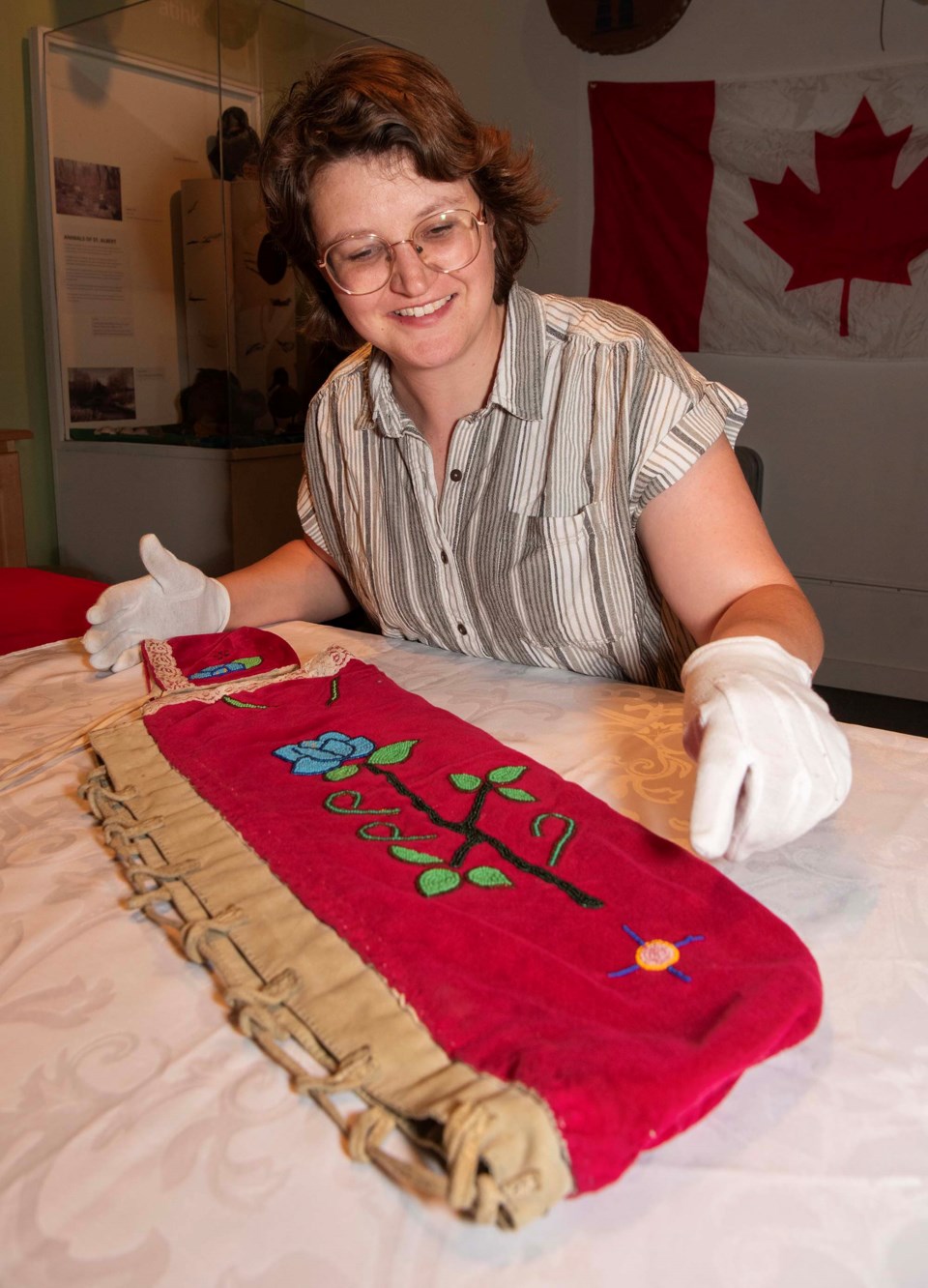Becoming a mother changes your perspective.
For historian Alexandra Hendriks, it sparked new interest in the lives of Métis mothers in St. Albert’s past, and how dedicated they were to their children.
“I do hope my daughter one day will realize I made life choices for her to give her the best childhood she could have,” she said.
Hendriks is the educational programmer at the Musée Héritage Museum and mother of a 21-month-old girl. This July 18, she’ll be talking about the historic (and her current) experiences of Métis mothers in St. Albert as part of a presentation on Indigenous motherhood. The talk (which costs $3 per person) is part of the museum’s ongoing Local Histories series, where museum staff talk about topics close to their hearts.
This particular talk also serves as a preview of the museum’s Raising St. Albert exhibit on early childhood, which is set to open Aug. 14. Hendriks said guests at this week’s talk will get to examine several artifacts that will be featured in the exhibit, including a moss bag, which is a bag traditionally used by First Nations and Métis parents to hold babies. (These bags typically held absorbent moss that acted as a sort of diaper.)
River lot moms
Hendriks said her talk will focus on three Métis mothers who lived on River Lot 24 (which was roughly where the St. Albert grain elevators stand today) in the late 1800s–early 1900s: Sophie Rowland and her daughters Louisa Belcourt and Ameilia Cunningham. All three were respected midwives, assisting in the births of many St. Albert residents. Bishop Grandin presented Belcourt with a knife in recognition of her midwifery, Hendriks noted.
Métis women in this time period were responsible for cooking, cleaning, tailoring clothes, and passing on certain traditions, Hendriks said. As was the case on River Lot 24, multiple generations often lived in the same home or on the same farms, with grandparents and other relatives all chipping in to raise the kids.
“Especially with Métis families, the saying, ‘It takes a village [to raise a child]” is very important,” Hendriks said.
Hendriks said she’s felt a connection to these women through her research, noting for example how they both use Métis sashes to carry their children. She’s also learned more about her own mother — the upcoming Raising St. Albert exhibit features 8-mm film footage of her mother growing up in the 1970s.
“It’s pretty fascinating to see her grow up on camera,” she said, and to have the chance to talk to her about how she was raised.
Hendriks said she has been working with the St. Albert–Sturgeon County Métis Local #1904 to learn more about her Métis heritage in recent years. Officials with the local presented her then-unborn daughter with a blanket to symbolically welcome her into the community.
“She’s going to be raised with the Métis community in a way I wasn’t,” she said.
Hendriks said her talk will include a tour of the Rowland, Belcourt, and Cunningham homes. She encouraged anyone with an interest in history to attend, adding that mothers and children were particularly welcome.
The talk runs from 2 to 3 p.m. July 18 at the train station by the grain elevators (4 Meadowview Drive). Visit www.artsandheritage.ca/products/local-histories for details.




